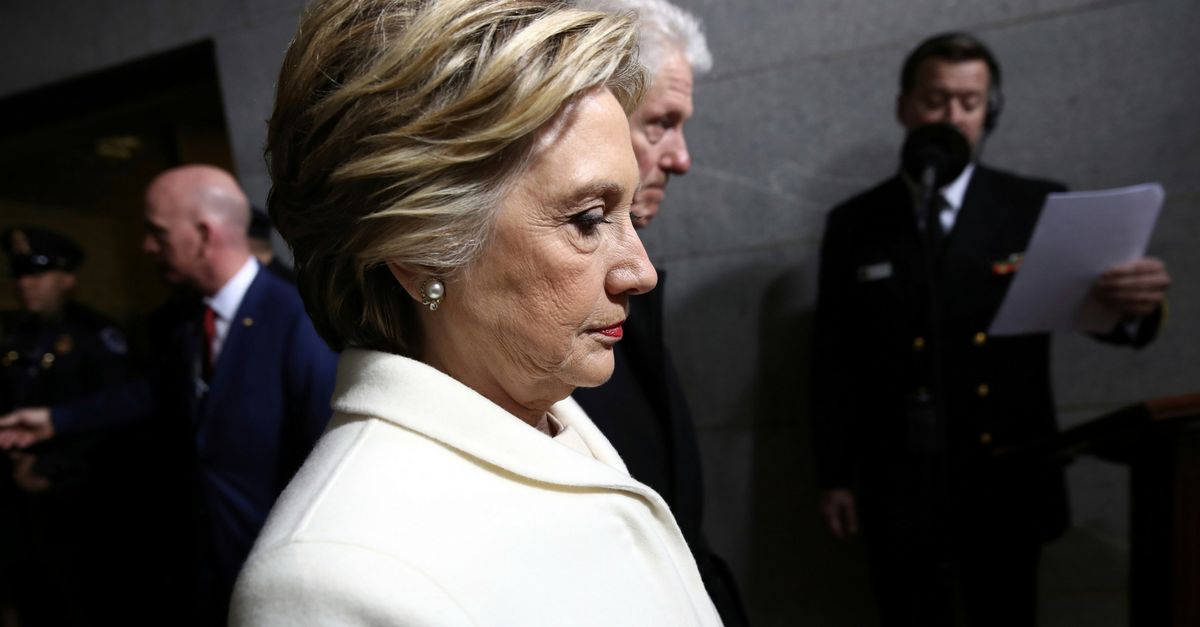Unlike her former political adversary, Hillary Clinton has been rather silent on Twitter — she sent out only one tweet in the month of December. She did weigh in on the Women’s March on Washington and on Jan. 28., as people were protesting in airports around America, she wrote, “I stand with the people gathered across the country tonight defending our values & our Constitution. This is not who we are.”
Videos by Rare
What I'm thinking about today:
Khizr Khan:https://t.co/wrHK7IkBrG
And a vet who fought with those now excluded:https://t.co/4LhNIT8xVo
— Hillary Clinton (@HillaryClinton) January 31, 2017
RELATED: Hillary Clinton responds to mass protests against Trump’s immigration ban
On Tuesday afternoon, while much of the nation was still reeling from Trump’s so-called “Muslim ban,” Clinton sent out a tweet linking two stories from the nation’s top magazines. The first story linked was a New Yorker interview with Khizr Khan, the Gold Star father who spoke at the Democratic National Convention and got into something of a tiff with Donald Trump. In the story, Khan said that the new executive order is “un-American” and “against the safety of our county.” Khan, whose son was killed in Iraq in 2004, said he believes the move “alienates Muslims who are patriotic citizens.”
https://twitter.com/realDonaldTrump/status/759743648573435905
RELATED: Hillary Clinton has a message to all women in her first interview since Donald Trump’s election
The second story that Clinton linked was an op-ed by former Marine Zachary Iscol, who wrote about the local Iraqi interpreters that assisted with his platoon. Iscol claimed that he “owes his life” to one of the interpreters who was “forced to flee Iraq after militants left a dog’s head outside their door with a note saying that they would be next.” Another one of the interpreters that worked with him overseas is still in Baghdad, and, after six years of vetting, has finally been cleared to come to the United States. That interpreter is in fear for his life, Iscol wrote, and “in his time of need, we have turned our backs on him, and on the very ideals that make this country great.”



